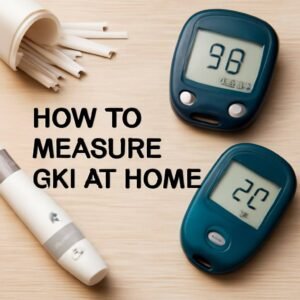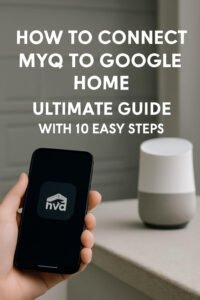When it comes to affordable home buying options, FHA homes present a fantastic opportunity. If you’re wondering how to find FHA homes for sale, this comprehensive guide will walk you through everything from understanding FHA loans to closing the deal on your dream home. FHA homes are designed to make homeownership accessible to more people by offering low down payments and flexible credit requirements. This article will explain what FHA homes are, why you might want one, and give you a detailed, step-by-step approach to finding and purchasing an FHA home confidently.
What Are FHA Homes?
FHA homes refer to properties financed with loans insured by the Federal Housing Administration (FHA). These loans are designed for first-time homebuyers or those with limited credit history and smaller savings for down payments. Unlike conventional loans, FHA loans require as little as a 3.5% down payment and have more lenient credit score requirements.
FHA loans are not limited to new or distressed homes—they can be used to purchase a wide range of properties, but they must meet certain condition standards set by FHA inspectors to ensure safety and livability.
Why Choose FHA Homes?
There are several reasons buyers prefer FHA homes:
- Lower Down Payment: You can put down as little as 3.5%, making homeownership easier to achieve.
- Flexible Credit Requirements: FHA loans are forgiving if your credit score is below perfect.
- Competitive Interest Rates: Often, FHA loans come with attractive interest rates.
- Assistance with Closing Costs: Sellers may contribute to closing costs, reducing out-of-pocket expenses.
- Accessible for First-Time Buyers: FHA loans are tailored for buyers entering the market.
Step 1: Understand FHA Loan Requirements
Before you begin house hunting, understand what FHA lenders expect. Key requirements include:
- Minimum credit score of 580 for the lowest down payment.
- Stable income and employment history.
- Debt-to-income ratio is generally under 43%.
- The property must meet FHA’s safety and condition standards.
Knowing these details upfront helps you prepare your finances and set realistic expectations.
Step 2: Get Pre-Approved for an FHA Loan
Getting pre-approved means a lender has conditionally agreed to loan you a certain amount based on your financial profile. It strengthens your offer and helps define your budget. To get pre-approved:
- Gather financial documents (pay stubs, tax returns, bank statements).
- Meet with an FHA-approved lender.
- Receive a pre-approval letter stating your loan eligibility.
This step is critical—don’t skip it!
Step 3: Define Your Home Buying Budget
Besides the purchase price, budget for down payment, closing costs (typically 2-5% of the loan amount), moving expenses, and minor repairs. Setting a firm budget keeps your search focused and prevents financial strain.
Step 4: Use FHA Home Search Tools and Websites
There are many online platforms where you can filter for FHA-approved homes. Useful tools include:
- HUD’s official website: It offers listings of homes foreclosed by the FHA.
- Zillow and Realtor.com: Use filters to find homes eligible for FHA loans.
- Local Multiple Listing Service (MLS): Access through your real estate agent.
Step 5: Work with FHA-Savvy Real Estate Agents
Not all agents are equally knowledgeable about FHA loans. Look for agents with experience in FHA transactions—they’ll guide you through specific FHA-related rules and paperwork, making your process smoother.
Step 6: Research Neighbourhoods and FHA Property Standards
FHA homes must pass strict inspection standards to qualify. Focus on neighbourhoods with:
- Good schools and amenities.
- Safe and well-maintained properties.
- Compliance with FHA property condition requirements.
Step 7: Attend Open Houses and Virtual Tours
Visiting properties in person or through virtual tours gives you insight into the condition and suitability of a home. Make notes and ask questions about FHA compliance.
Step 8: Make an FHA-Compliant Offer
Your offer should reflect FHA guidelines, including contingencies for appraisal and inspection outcomes. Your agent can help draft an offer that protects your interests.
Step 9: Schedule the FHA Home Inspection
An FHA inspection focuses on safety and livability, covering things like:
- Roofing and structural integrity.
- Heating, plumbing, and electrical systems.
- Absence of hazards like mould or lead paint.
Step 10: Negotiate Repairs and Seller Concessions
If the inspection reveals issues, negotiate repairs or seller concessions. FHA requires certain repairs before loan approval, so don’t hesitate to ask for them.
Step 11: Understand the FHA Appraisal Process
An FHA appraisal differs from a standard appraisal. The appraiser verifies that the property meets FHA minimum standards, which can influence the loan amount.
Step 12: Finalise Your FHA Loan Approval
After appraisal and repair negotiations, submit final documents to your lender for loan approval. Stay in close communication to avoid delays.
Step 13: Prepare for Closing Day
Gather all necessary paperwork, including ID, loan documents, and proof of insurance. Be ready for signing and funding.
Step 14: Move into Your New FHA Home
Plan your move carefully to avoid stress. Change your address, set up utilities, and start personalising your new space.
Step 15: Maintain Your FHA Home and Loan Benefits
Maintain your home to preserve value and stay current on mortgage payments to keep FHA loan benefits. Consider refinancing if interest rates drop.
Frequently Asked Questions (FAQs)
Can I buy any home with an FHA loan?
Most homes qualify, but they must meet FHA safety and livability standards.
How much down payment is required for FHA loans?
Typically 3.5% if your credit score is 580 or higher.
Can sellers pay closing costs in an FHA sale?
Yes, sellers can contribute up to 6% of the purchase price.
Does FHA loan approval take longer?
It can take a bit longer due to appraisal and inspection requirements.
Is mortgage insurance required on FHA loans?
Yes, FHA loans require mortgage insurance premiums (MIP) for the loan duration.
Can I use an FHA loan for a second home?
FHA loans are only for primary residences.
Conclusion: Empower Your FHA Home Buying Journey
Finding FHA homes for sale might seem complex, but breaking the process down into manageable steps makes it achievable. With low down payments, flexible qualifications, and protective measures, FHA loans open doors to homeownership for many. Use this guide to confidently navigate each step and turn your dream of owning a home into reality.













